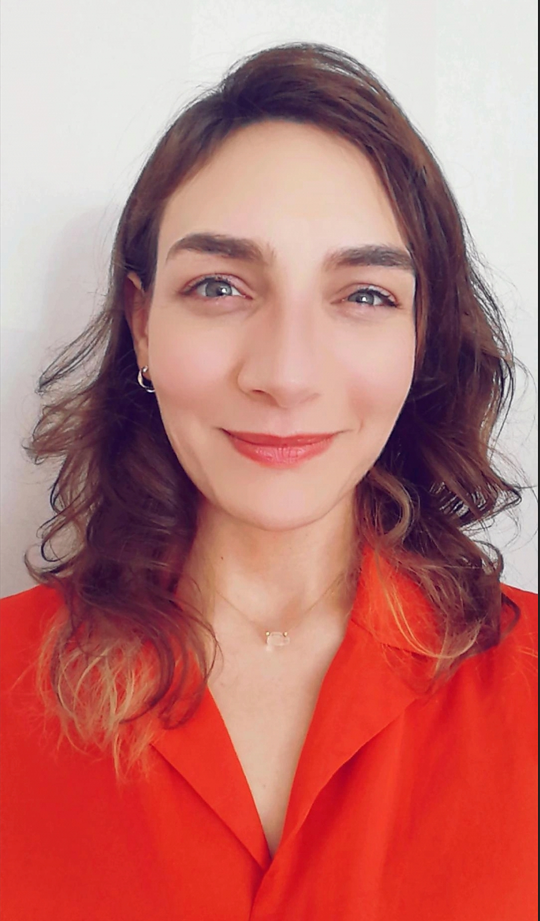Speakers and Abstracts
(Speakers are listed in the order of the programs’ sessions)
Lecture 1: Exploring Alopecia: A dermathopathologist’s approach to hair loss
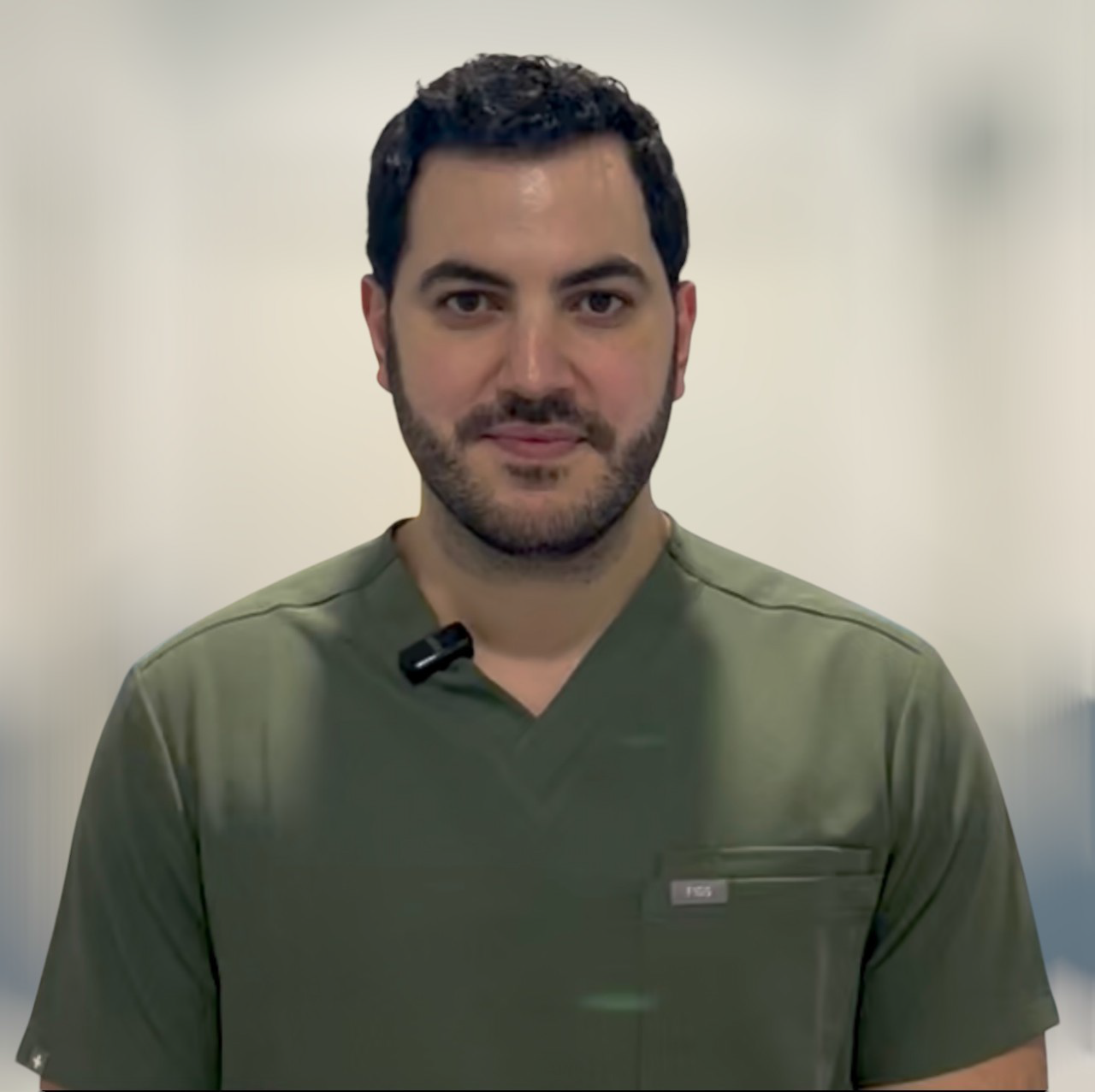
Elie Saliba, MD
Dr. Saliba is a Clinical Assistant Professor in the Dermatology Department at the LAU Gilbert and Rose-Marie Chagoury School of Medicine.
A graduate of the Lebanese American University School of Medicine in 2016, Dr. Saliba subsequently completed a dermatology residency, graduating in 2020. He then moved to the United States and completed two fellowships: one in Dermatopathology at Boston University, and another in Rheumatologic Dermatology/Immunodermatology at Brown University.
Dr. Saliba has published over 30 peer-reviewed articles, chapters, and abstracts. He has received multiple scholarships and awards, and has presented his work at symposia and meetings in Lebanon as well as internationally.
His research interests include connective tissue diseases, hair disorders, and dermatopathology.
Abstract
Hair disorders present a significant diagnostic challenge, requiring careful evaluation of clinical and histopathologic features for accurate diagnosis and management. This presentation will highlight key microscopic findings that assist in differentiating between scarring and non-scarring Alopecias, and provide an overview of the diagnostic approach, emphasizing the importance of early intervention to prevent permanent hair loss.
Lecture 2: Trichoscopy: a Comprehensive Overview
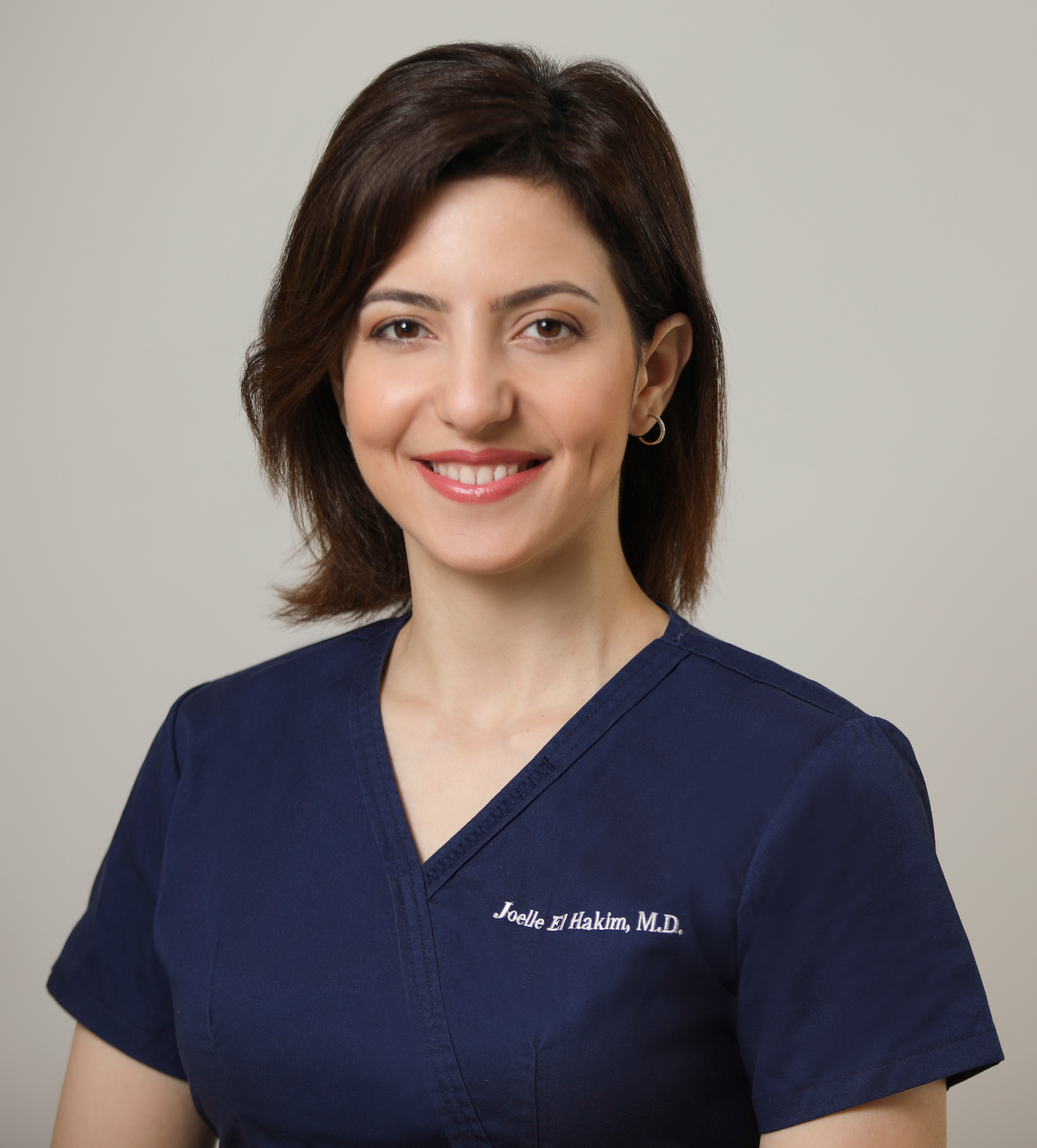
Joelle El Hakim, MD
Dr. El Hakim obtained her Dermatology degree in 2022 from the Lebanese American University, following her training at the LAU Medical Center-Rizk Hospital. Prior to that, she earned her Medical Doctorate from the same university, graduating with the highest distinction.
Dr. El Hakim has a special interest in both medical and cosmetic dermatology. She currently practices at The Skin Clinic and The Hair Clinic, with a particular focus on alopecia and hair transplant procedures. In addition to patient care, she leads clinical studies aimed at developing new treatments and documenting some of the unique techniques offered at the clinic
Dr. El Hakim has authored numerous publications in the fields of general dermatology and dermatopathology.
Abstract
Trichoscopy, the dermoscopic imaging of the hair and scalp, has provided an essential evaluation tool of hair and scalp disorders. It is a non-invasive, rapid, and highly informative diagnostic technique. When integrated into clinical practice, it helps dermatologists reach a more accurate diagnosis, reduces the need for invasive procedures, and improves patient outcomes. This presentation will provide an overview of trichoscopy, its principles, and its practical applications in dermatology. Key trichoscopic patterns observed in common conditions such as androgenetic alopecia, telogen effluvium, alopecia areata, and scarring alopecias will be discussed.
Lecture 3: Common hair disorders in the pediatric population
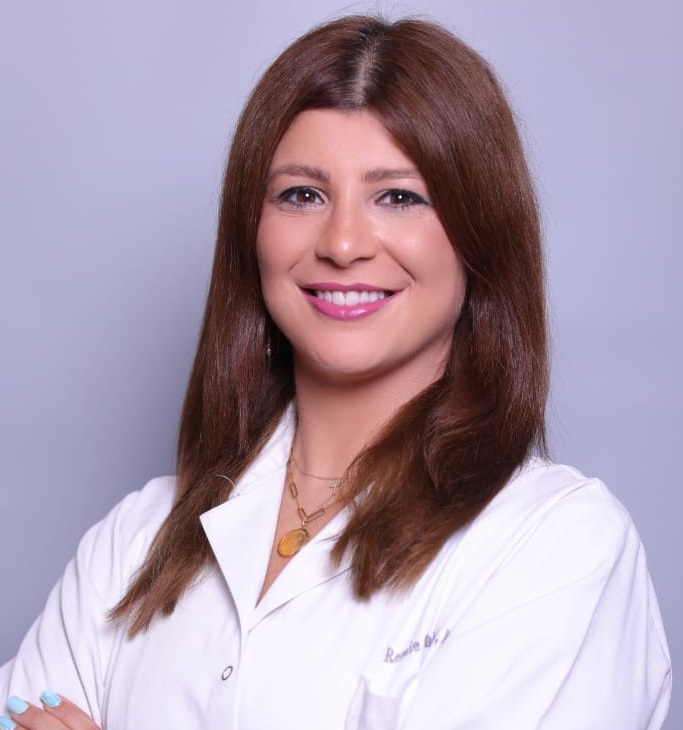
Remie Chrabieh, MD
Dr. Chrabieh is an Assistant Professor of Dermatology and Pediatrics at the University of Cincinnati and a pediatric dermatologist at Cincinnati Children’s Hospital. She serves as Director of the Hair and Nail Clinic and Pediatric Resident Education Director.
Dr. Chrabieh earned her medical degree from the Lebanese American University (LAU), where she was honored with the Leadership Award. She completed her dermatology residency at LAU, serving as the Resident Council Representative, and subsequently pursued a pediatric dermatology fellowship at the University of Colorado in 2024.
Throughout her career, Dr. Chrabieh has been actively engaged in medical education and research. She has presented at national and international conferences, contributed to peer-reviewed publications, and participated in initiatives aimed at enhancing dermatologic care. Her leadership extends beyond clinical practice through involvement in community outreach programs and mentorship activities.
With a particular interest in hair and nail disorders, Dr. Chrabieh continues to contribute to advancements in these fields while training the next generation of physicians.
Abstract
Hair disorders in children can significantly impact both physical and psychological well-being. This presentation will cover the most common pediatric hair disorders, including tinea capitis, alopecia areata, trichotillomania, telogen effluvium, traction alopecia, and androgenetic alopecia. Attendees will gain insights into the clinical presentation, diagnostic approach, and evidence-based treatment strategies for these conditions.
Lecture 4: Decoding Genetic Hair Disorders
Jinia El-Feghaly, MD
Dr. El-Feghaly was born and raised in Wadi Chahrour, Lebanon. After finishing her medical school and dermatology residency at the Lebanese American University, she pursued her dream and completed a pediatric dermatology fellowship at Lurie Children’s Hospital/Northwestern University, Chicago, IL, a leading center in childhood skin disorders. Dr. El Feghaly currently serves as an assistant professor of dermatology and pediatrics & chief of pediatric dermatology at Golisano Children’s Hospital / University of Rochester, NY & as an adjunct assistant professor at the American University of Beirut. Dr. El Feghaly serves as an editorial board member of the International Society of Pediatric Dermatology (ISPD), a board member of the Lebanese Society of Dermatology (LDS), a co-lead of the Hemangioma Focused Study Group of the Pediatric Dermatology Research Alliance (PeDRA), a member of the medical and advisory board of the Foundation for Ichthyosis and other skin types (FIRST), and as a member of the Society for Pediatric Dermatology (SPD) & of the International Society for the Study of Vascular Anomalies (ISSVA). Dr. El Feghaly has co-authored articles and book chapters and lectured on Atopic Dermatitis, Genetic Skin Disorders, and Vascular Anomalies. Dr. El Feghaly continues to visit her home country Lebanon regularly to participate in medical, educational, and artistic activities and to spend time with family and friends.
Abstract
Our hair is not a mere accessory in our body. Our hair hides the secrets of our DNA and the story of our embryologic development. Genetic hair disorders are heterogeneous; they can be isolated or a sign of multisystem conditions. Through this session we hope to provide you with a basic and practical approach to unraveling major genetic hair disorders in children.
Lecture 5: Laser and Hair

Zeina Tannous, MD
Dr. Tannous is a tenured Professor and Chair of Dermatology at the LAU Gilbert and Rose-Marie Chagoury School of Medicine and Chief of Dermatology at LAU Medical Center-Rizk Hospital. She is also a Dermatology faculty member at Harvard Medical School. A graduate of the American University of Beirut School of Medicine, Dr. Tannous joined the Harvard Medical School for a Dermatology residency and three fellowships in Dermatopathology, Mohs Micrographic and Dermatologic Surgery, and Laser and Cosmetic Dermatology. She is board-certified in the United States in Dermatology and Dermatopathology.
Dr. Tannous has published over 80 peer-reviewed articles, reviews, chapters, and abstracts. She has also co-authored three textbooks, including “Cosmetic and Laser Dermatology” textbook, which includes over 600 clinical photographs and has been translated into Korean and Greek. Notably, she served as the lead author of the second edition of this textbook. Her latest publication, the “Comprehensive Textbook of Cosmetic Dermatology, Laser and Energy-Based Therapies,” was released in 2022. Dr. Tannous has served both as guest editor and editorial board member for the journal “Lasers in Surgery and Medicine.” Dr. Tannous is a member of multiple prestigious dermatological and laser societies, including the American Academy of Dermatology, the American Society for Laser Medicine and Surgery, the Lebanese Dermatologic Society, and Alpha Omega Alpha Honor Medical Society.
Dr. Tannous has presented over 150 lectures and seminars in regional, national, and international meetings on the topics of Dermatology, Dermatopathology, Laser Surgery, and Dermatologic Surgery. Her teaching record includes numerous local contributions in the form of grand rounds and presentations to faculty, residents, medical students and pharmacy students. She has supervised and trained significant number of fellows, residents, and medical students both in the United States and in Lebanon.
Dr. Tannous has assumed multiple leadership roles throughout her academic career. She has served as a program co-chair in multiple national and international meetings. She has also served as Associate Program Director for Dermatopathology in the Dermatology Department at Harvard Medical School. She was elected in November 2018 as the founding chair of the Arab Board of Cosmetic Dermatology. She subsequently developed and implemented the fellowship program goals and objectives for training in Cosmetic Dermatology and Lasers, as a subspecialty under the Arab Board of Dermatology, and designed the entire didactic and training curriculum. Dr. Tannous is currently the founding chair and the residency program director of the Dermatology Department at the Lebanese American University School of Medicine.
Dr. Tannous has served as a principal investigator on multiple studies, and her research has resulted in three patents. Dr. Tannous’ research interests include the application of lasers and light sources in the treatment of dermatologic conditions, including hemangiomas, portwine stains and skin cancer, as well as non-invasive imaging of skin. She has been exploring the treatment of basal cell carcinoma with vascular-specific lasers and her work has resulted in multiple publications in this area.
Abstract
The use of lasers and low-level light therapy (LLLT) for hair growth has gained significant attention as a non-invasive treatment option for individuals experiencing hair thinning or loss. Lasers and LLLT work by stimulating hair follicles through specific wavelengths of light, promoting cellular activity and improving blood circulation to the scalp. This process encourages the growth phase of the hair cycle, potentially increasing hair density and thickness.
Lecture 6: Restore and regrow: Exploring treatments for Androgenetic Alopecia
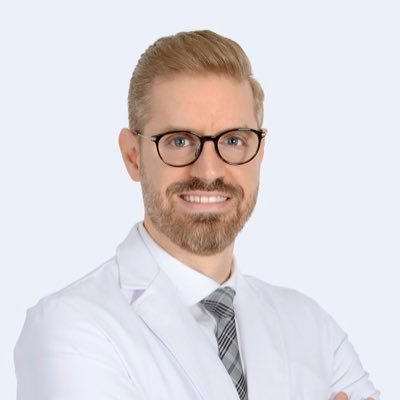

Bader Zimmo, MD, FRCPC, DABD
Dr. Zimmo is a Clinical Assistant Professor and Head of the Department of Dermatology at King Abdulaziz University in Jeddah, Saudi Arabia. He earned his medical degree from King Abdulaziz University and completed his dermatology residency at McGill University in Montreal, Canada. He obtained both Canadian and American board certification in dermatology. He further pursued fellowship training in laser and cosmetic dermatology at McGill University.
From 2021 to 2024, Dr. Zimmo served as a member of the Board of Directors of the Saudi Society of Dermatology and Dermatologic Surgery. He has been an invited speaker at numerous national and international conferences and has actively participated in public education initiatives. His commitment to advancing dermatology is evident through his contributions to clinical practice, research, and medical education.
Abstract
Androgenetic alopecia (AGA) is the most common form of hair loss, affecting both men and women, with limited therapeutic options and variable efficacy. Recent advances in regenerative medicine have highlighted the potential of exosomes as a novel, cell-free therapeutic approach. This lecture explores the emerging role and the challenges of using exosomes in the treatment of AGA.
Lecture 7: Hair Transplantation for Women and Men

Marc Avram, MD
Dr. Avram is a Harvard-trained board-certified dermatologist, practicing in the Upper East Side of New York City. Dr. Avram treats men and women with a variety of services , including- FUE and FUT hair transplants, robotic hair transplants, platelet rich plasma (PRP) treatments, low laser light therapy, and medications for hair loss. Dr. Avram also provides cosmetic dermatology services.
In addition to treating patients, Dr. Avram is a clinical professor of dermatology at the New York Presbyterian Hospital - Weill Medical College at Cornell Medical Center and has authored five textbooks, dozens of textbook chapters and peer reviewed papers on hair loss, hair transplantation, and cosmetic dermatology.
Abstract
In recent years there has been significant new treatment options to treat male and female pattern hair loss for women and me. This talk will review the latest medical and surgical advances. The role of topical and oral minoxidil, oral and topical finasteride, low and high energy lasers and platelet rich plasma in treating hair loss will be reviewed. In addition candidate selection, FUE vs FUT as donor harvesting techniques for hair transplant surgery will be reviewed. The combination of successful medical with surgical hair restoration will be discussed for long term maximum density for patients.
Lecture 8: JAK inhibitors in Alopecia Areata

Carlos Gustavo Wambier, MD, PhD
Dr. Wambier is an Associate Professor of Dermatology and Clinician Educator at the Warren Alpert Medical School of Brown University. He directs the Center for Lasers and Aesthetics at Brown Dermatology and serves as an attending dermatologist at the Hair Clinic, Resident Cosmetic Clinic, and the Rhode Island Burn Center. He also oversees dermatology clinical trials.
Trained in Brazil and the U.S., Dr. Wambier earned his MD, dermatology residency, and PhD from the University of São Paulo, followed by a postdoctoral fellowship at Yale University.
Internationally recognized in procedural dermatology, he specializes in injectables, lasers, drug-delivery techniques, and is a leading expert in chemical peels. His research has helped revive interest in advanced phenol-croton oil peels. He has delivered over 100 lectures worldwide and published more than 150 peer-reviewed articles.
Abstract
Alopecia Areata now has safe and effective on-label therapy with the advent of Janus Kinase Inhibitors. This lecture will cover data from the pivotal phase 3 studies of Baricitinib, Ritlecitinib, and Deuruxolitinib, and explore results of off-label experience of topical and intralesional JAKi therapy.
Lecture 9: Clinical overview of scarring Alopecia

Lynne Goldberg, MD
Dr. Goldberg completed residencies in both internal medicine at New York University and dermatology at Albert Einstein College of Medicine before completing her fellowship in dermatopathology at Boston University. She remains on the dermatology faculty at Boston University, where she ran the Hair Clinic at Boston Medical Center for many years until her recent departure. She is currently practicing dermatopathology at DermDx New England, a subsidy of Sonic Healthcare USA.
Dr. Goldberg has developed expertise in the clinical and histopathological evaluation of alopecia. She has served on the Boards of the American Society of Dermatopathology and the American Hair Research Society, on the Editorial Board of the Journal of Cutaneous Pathology, and as a Scientific Advisor to the Scarring Alopecia Foundation. She has a passion for teaching, has won several teaching awards, and lectures widely on the diagnosis and management of alopecia.
Abstract
Scarring Alopecias are a difficult group of diseases, both for patients and providers alike. This talk will give an overview of the types of scarring Alopecias, including their diagnosis and management as well as recent updates, based on the speaker’s experience running a specialized hair clinic.
